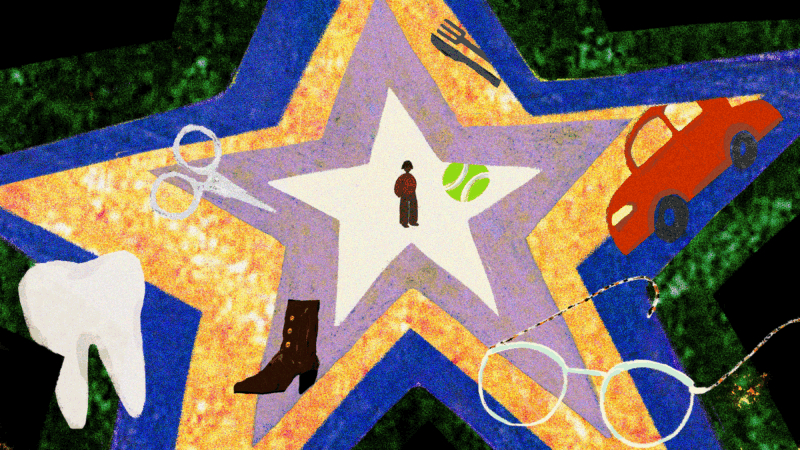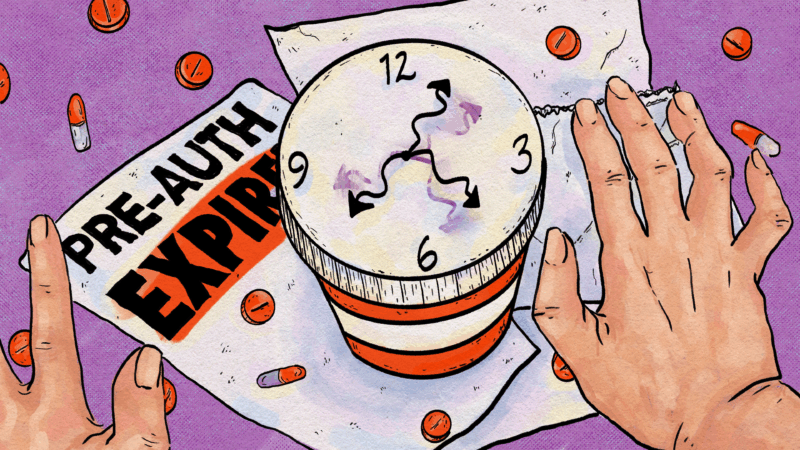The Gulf South is dealing with a ‘tripledemic’ of Covid, flu and RSV as the holidays near
It’s been nearly three years since the COVID-19 pandemic officially began, but health officials are warning people across the Gulf South — which was hit relatively hard by the infectious disease — to not put their guard down.
As people gather for family dinners and travel over the holiday season, the potential for a surge in cases is still present. Across the region, the rate at which COVID-19 cases are increasing appears to be slow. Still, a large chunk of the region’s population is still unvaccinated against the virus.
“Our COVID-19 numbers are low right now,” Joseph Kanter, Louisiana’s state health officer, said. “We had a sixth surge a few months ago…and over the past couple of weeks, we’ve had that downward progress stall. So it’s probably likely that we’ll see COVID-19 [cases] go back up at some point in the next few weeks.”
In Louisiana, only about 59% of people have initiated a vaccine regimen. That figure is 58% in Alabama and 60% in Mississippi.
But coronavirus is not the only concern this year. Alabama Department of Health medical officer Wes Stubblefield warns of a “tripledemic” as two other respiratory illnesses are circulating around, too — influenza and the highly contagious respiratory syncytial virus, better known as RSV. Stubblefield said the age group most affected by the flu has been 5-24 year-olds.
“Influenza has very high activity right now. We actually have more patients hospitalized with influenza in Alabama than we do with COVID-19,” Stubblefield said. “Influenza is a terrible illness. It can make people very sick, but it can also be a mild illness. It’s not possible to test at home for flu, but like COVID-19, it’s vaccine-preventable and has treatments.”
Influenza is also surging in Louisiana, which is seeing its highest flu activity in the last five years. Reports to LDH’s Office of Public Health through its Influenza-like Illness Surveillance Network (ILINet) showed 10.49% of patient visits were due to influenza-like illness as of Monday. Louisiana’s rate — nearly twice the national average of 5.5% — means that one of every 10 ER patients is showing up with flu symptoms, according to Kanter.
Nationally, hospitalizations for RSV have been steadily increasing, too, with some of the highest rates being for children below 6 months of age.
“We were largely spared the flu season in the past couple of years, in large part because of all the mitigation measures and all the precautions people were taking to protect themselves,” Kanter said. “That said, this flu season is off to a very, very fast start. We don’t have vaccines for everything, but we do have vaccines for flu, and it works pretty well. If you haven’t done so yet, you really should do so as soon as possible.”
Health officials are doing their part to spread information about the viruses. Stubblefield said ADH is monitoring disease activity, providing vaccinations at health departments across the state and sharing tips on how residents can stay safe on social media. They’re also prepared for a surge in COVID-19 cases.
“We’ve spent a lot of time getting our PPE supplies back up in our warehouses so that we can use them in case there’s potential surges in activity,” he said. “And we’ve also been able to distribute supplies… things like testing, tents, and other things for hospitals to use.”
Kanter said this cocktail of respiratory viruses has the potential to make a lot of people sick. Hospitals tend to be busier during the holiday season, so it’s important that people take precautions to stem the spread of disease and not overwhelm emergency rooms. He suggests that families continue to take preventative measures for COVID-19, like masking, distancing, opening windows, spending time outside and using at-home COVID-19 test kits, during the holiday season.
“I get that people are fatigued — that’s completely understandable,” Kanter said of the social distancing and masking throughout the pandemic. “[But] people that have more vulnerable members of their family should be taking added precautions.”
This story was produced by the Gulf States Newsroom, a collaboration among Mississippi Public Broadcasting, WBHM in Alabama and WWNO and WRKF in Louisiana and NPR. Support for public health coverage comes from the Commonwealth Fund.
Why farmers in California are backing a giant solar farm
Many farmers have had to fallow land as a state law comes into effect limiting their access to water. There's now a push to develop some of that land… into solar farms.
Every business wants your review. What’s with the feedback frenzy?
Customers want to read reviews and businesses need reviews to attract customers. But the constant demand for reviews could be creating a feedback backlash, experts say.
Can’t get a prescription renewed? Here’s how to cope with prior authorizations
These health care hurdles can stand in the way of getting treatment your doctor says you need. Here's what to know about how to deal with them.
‘Get back to integrity’: Oklahoma’s Kevin Stitt on Republicans after Trump
NPR's Steve Inskeep asks Oklahoma Gov. Kevin Stitt about his spat with President Trump, immigration and the future of the Republican Party.
Civil rights leaders say the racial progress Jesse Jackson fought for is under threat
Activists say racial progress won by the Rev. Jesse Jackson is under threat, as a new generation of leaders works to preserve hard-fought civil rights gains.
Tariffs cost American shoppers. They’re unlikely to get that money back
After the Supreme Court declared the emergency tariffs illegal, the refund process will be messy and will go to businesses first.





